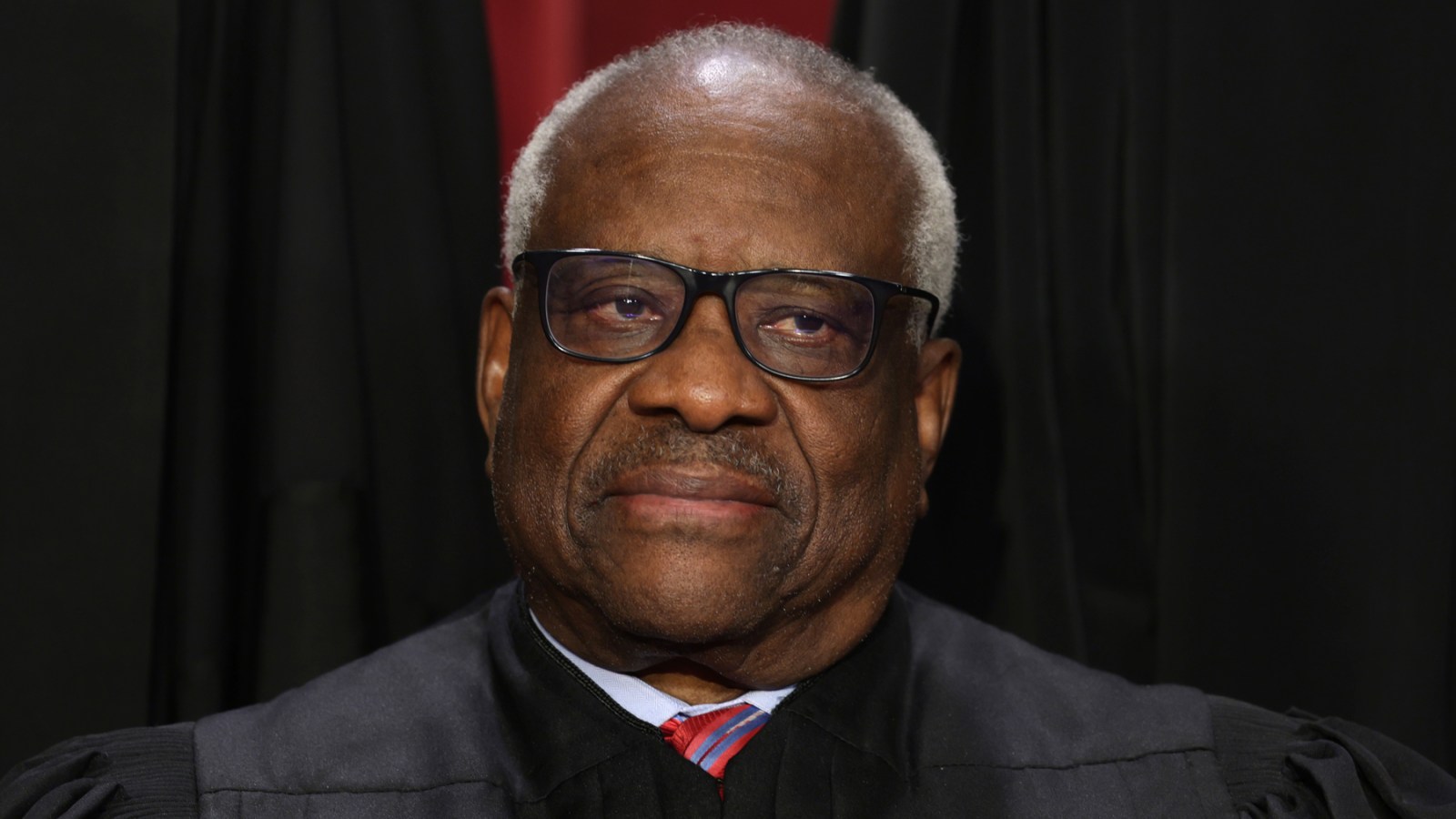- cross-posted to:
- [email protected]
- [email protected]
- cross-posted to:
- [email protected]
- [email protected]
The Supreme Court on Tuesday declined to review a challenge to its landmark New York Times v. Sullivan ruling. Justice Clarence Thomas has some thoughts.
The 1964 ruling established limits on public officials’ ability to sue on grounds of defamation, as well as the need to prove a standard of “actual malice” by the outlet making the allegedly defamatory statements.
The Supreme Court declined to hear Blankenship v. NBC Universal, LLC, a lawsuit brought by coal magnate Don Blankenship, who in 2015 was convicted of a misdemeanor charge of conspiring to violate safety standards at a Virginia mine where an explosion killed 29 workers. Blankenship was sentenced to a year in prison and fined $250,000. Last year, the Supreme Court upheld the conviction. Blankenship then sued NBC Universal, alleging that the news company had defamed him by describing him as a “felon.” Lower courts ruled that NBC had not acted with “malice” in their statements, and the case was appealed to the Supreme Court.
While Justice Thomas concurred that Blankenship’s case did not require a ruling by the Supreme Court, he called for the justices to review the standard set by New York Times v. Sullivan “in an appropriate case.”
“I continue to adhere to my view that we should reconsider the actual-malice standard,” Thomas wrote,” referencing his previous opinion in Coral Ridge Ministries Media, Inc. v. Southern Poverty Law Center. “New York Times and the Court’s decisions extending it were policy-driven decisions masquerading as constitutional law,” he added, “the actual-malice standard comes at a heavy cost, allowing media organizations and interest groups ‘to cast false aspersions on public figures with near impunity.’”
The push from Thomas comes amid widespread media reporting on allegations of corruption and improper financial relationships involving the justice. A series of investigations by ProPublica and The New York Times have uncovered unreported gifts, real estate deals, and luxury perks given to Thomas by high-profile conservative figures — many of which were not reported in financial disclosures, or weighed as conflicts of interest in relevant cases.
In April, ProPublica reported on the extent of Thomas’ relationship with billionaire Harlan Crow. The real estate mogul gifted Thomas frequent rides on private jets, vacations to luxury resorts, and trips on his superyachts. Crow also purchased $133,000 in real estate from Thomas, and footed private school tuition bills for a child Thomas was raising.
Subsequent reporting has exposed Thomas’ relationship with other powerful conservative players, including the Koch brothers, oil tycoon Paul “Tony” Novelly, H. Wayne Huizenga, the former owner of the Miami Dolphins, and investor David Sokol.
Thomas has claimed that the omissions from his financial statements were nothing more than oversights and that he had been advised that “this sort of personal hospitality from close personal friends, who did not have business before the Court, was not reportable.”



The title is about free speech. The media called him a felon. He is not a felon. That’s easy to fact check and it is damaging to his reputation.
Thomas is correct.
It’s not that cut and dry.
https://apnews.com/article/crime-west-virginia-don-blankenship-prisons-99091dd8c1fdb56458393eff9a7b4360
The active malice rule is put in place to prevent public figures from sueing anybody who even slightly criticizes them. Without the rule, it would dissuade people’s free speech to report and comment on these things.
That is some mental gymnastics to come to that conclusion. He was convicted of a misdemeanor. Only an idiot would think that’s a felon.
Thomas is correct. Were let the standard slip to be meaningful.
Freedom is speech is between you and the government. It’s not about people defaming you.
He was in federal prison.
You can’t have free speech without protections from slapp suits.
Umm… Where do you think a person goes to serve time if they go to a federal institution?
Free speech is between you and the government. It isn’t between you and another party.
Is there somewhere you’re going with this?
Slapp suits use the government to silence people. I don’t know why your bringing this up as if it helps make your case.
Yes there is nothing odd serving a federal sentence in a federal prison. That’s common sense. Where else would they serve their time? A misdemeanor is a year of less. So the sentence would tell you it’s a misdemeanor. Also the paperwork would show its misdemeanor. The crime itself would tell you it’s a misdemeanor.
Where did Thomas mention a slapp suit ?
And no a slapp suit is the the government silencing anymore. Good lord learn how the system works. It’s a civil action between two parties. The government is just enforcing the laws.
The active malice requirement is a protection against slapp suits and similar. He doesn’t need eo explicitly mention them for them to be a part of this.
It’s run by the government and enforced by the government. If you fail to show up, fail to get the money together to fight it, etc, you will be severely punished (enforced by the government).
You can’t act like the government isn’t involved in lawsuits.
Congratulations, you found the part where the government is involved with this, thus the potential trampling of free speech.
No, he needs to mention it to be relevant. You can’t put words in his mouth.
You don’t understand the basics of law and are rambling.
It is not the government dampening free speech and has nothing to do with the conversation or what Thomas said.
If you don’t understand something, ask questions instead of looking like an idiot.
The comment was about the journalist making slanderous comments. They should be punished for that. It isn’t a free speech issue. Free speech doesn’t allow you to damage the reputation of others and the government isn’t the one brining suit.